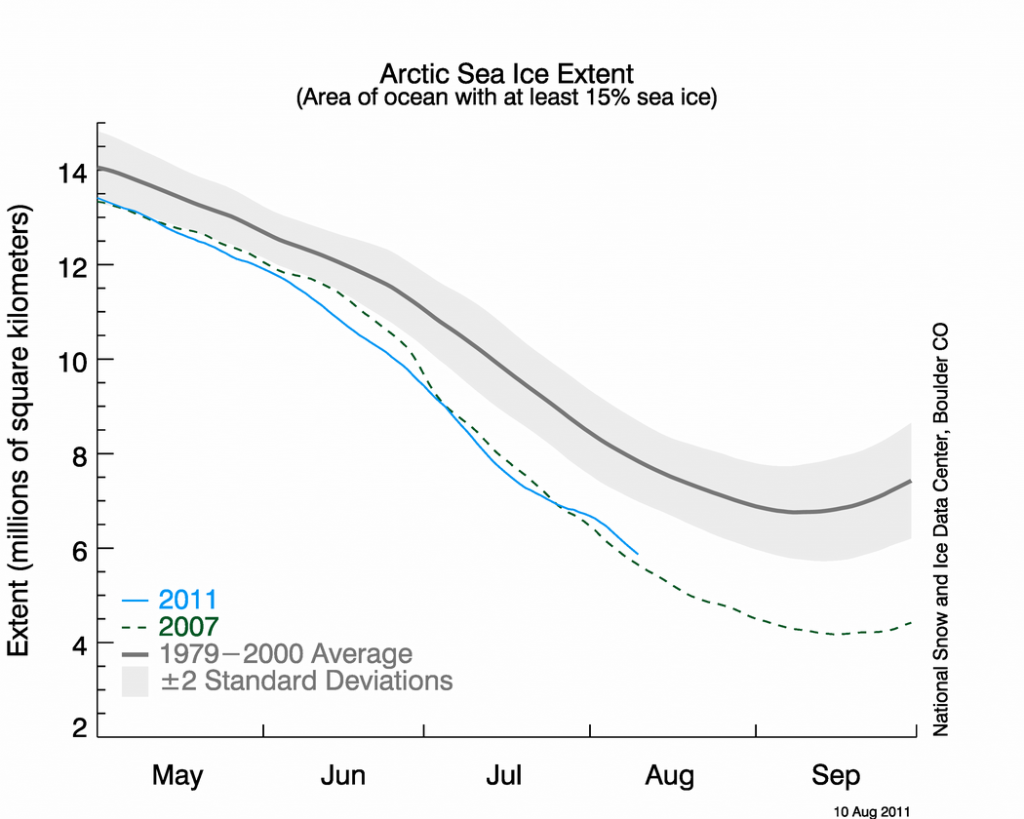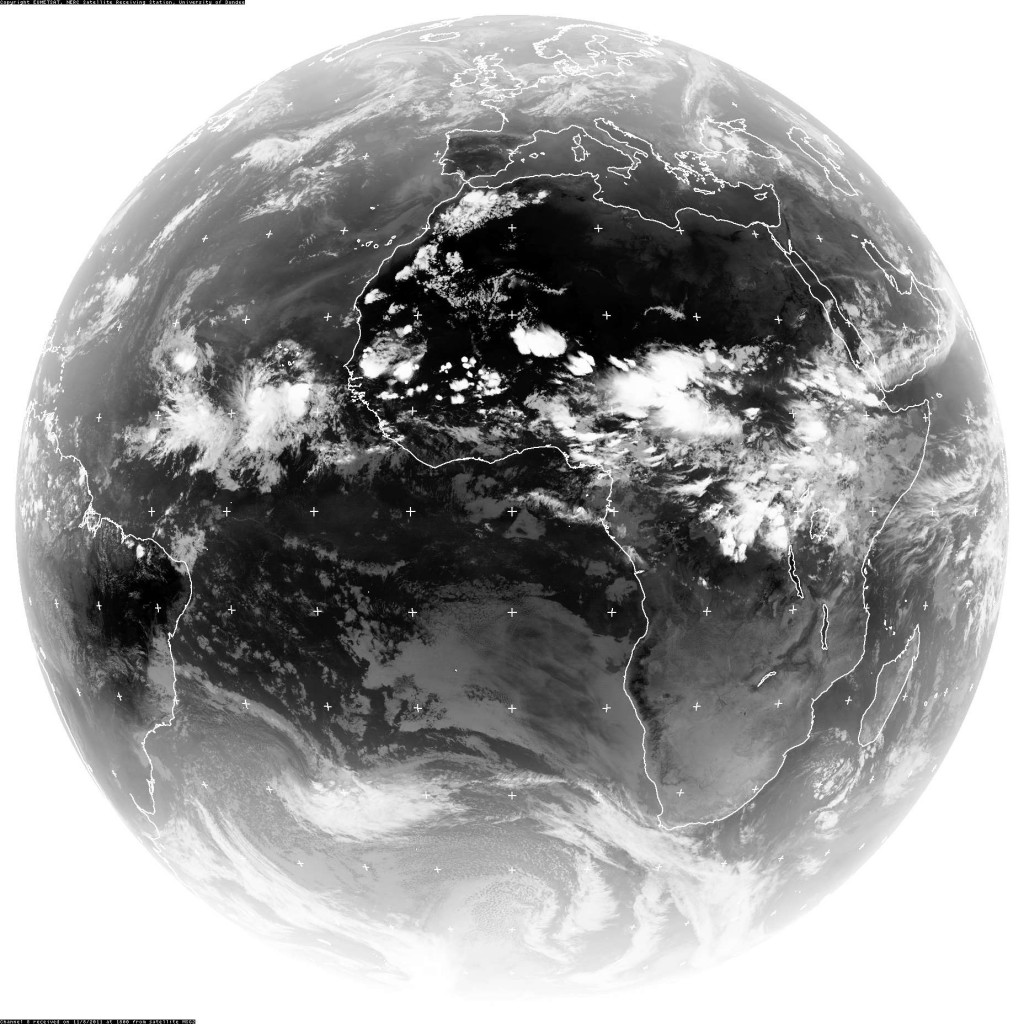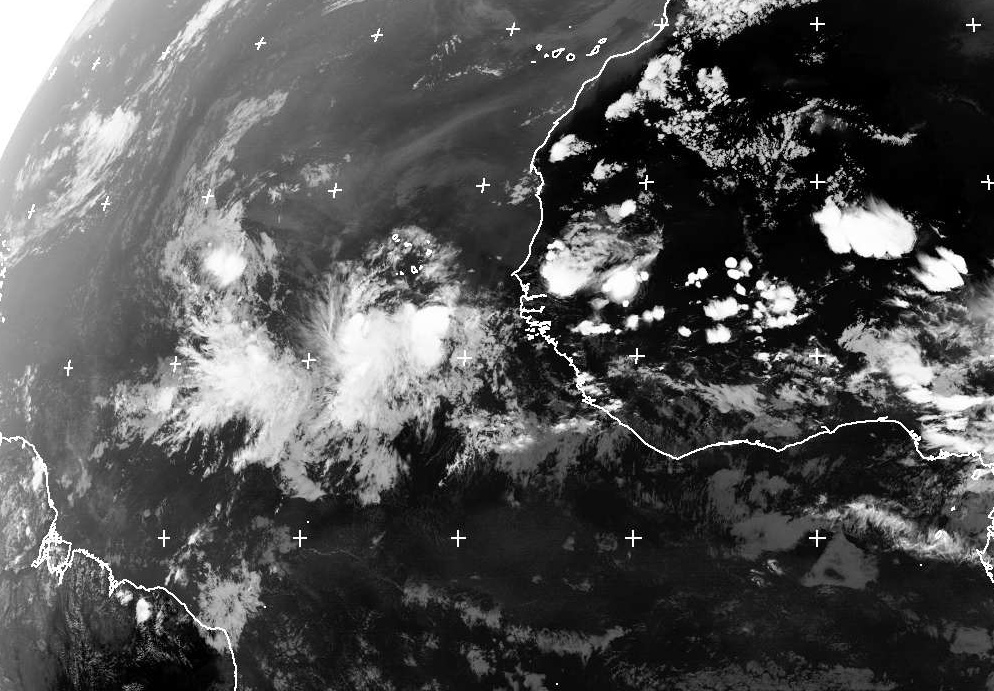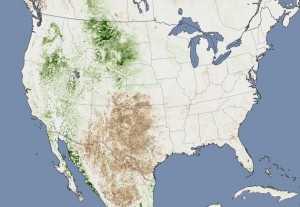11 August 2011
Tropics Are Heating Up- Planet Already Is
Posted by Dan Satterfield
A strong tropical wave off of Africa is looking as if it may develop into the seasons first Cape Verde type tropical system. The storms that develop near the Cape Verde Islands do not usually start until late in Summer and can become hurricanes that last for many days. A close up view of the system farthest east shows what may be some circulation and the NHC forecaster is pegging a 40% chance of development into a tropical storm in 48 hours. That seems about right considering the satellite presentation and the time of year/ocean temps.
NASA announced today the July temperatures worldwide were the 3rd warmest on record. Only 1998 and 2009 were warmer. Looking at land temps. only it was the 4th warmest and if you just look at the Northern Hemisphere it was the second warmest on record.
USA temps. in July were the 4th warmest on record and the climate extremes index at NCDC reached 37%.
 Arctic Sea ice has picked up melting again after a slowdown last week. If this trend continues then the record low year of 2007 may be in jeopardy. It is important to remember that increasing greenhouse gases are not the only climate factor that affects the Arctic ice on a yearly basis.
Arctic Sea ice has picked up melting again after a slowdown last week. If this trend continues then the record low year of 2007 may be in jeopardy. It is important to remember that increasing greenhouse gases are not the only climate factor that affects the Arctic ice on a yearly basis.
While there is an overwhelming consensus that summer sea ice will be mainly absent by the end of this century, the rapid disappearance is more uncertain. That said, a new record low coming so soon after 2007 is not a good sign.
A good place to get more detailed info on the Arctic ice is from Neven’s Arctic Sea Ice blog. He has expertise in the field.
Update 6PM Thur: Andy Revkin’s Dot Earth blog has a very good discussion of the sea ice with several scientists putting in their two cents worth. This is a great example of the back and forth of science, and how consensus is eventually reached. Do not get the wrong idea though, they are not arguing about whether the ice will disappear or that humans are causing it (That is the sole province these days of political extremists and the media that serves to confirm their beliefs). Instead, they are discussing the merits of papers about the speed of the disappearance.
The NOAA polar orbiting satellites have a sensor that looks at vegetation, and the data over North America shows well the incredible drought over Texas and Oklahoma. The good news is that conditions are better in Oklahoma today with some significant rain in the central part of the state. Unfortunately, Texas continues to see incredible heat and long-range guidance is not favorable for rain.





 Dan Satterfield has worked as an on air meteorologist for 32 years in Oklahoma, Florida and Alabama. Forecasting weather is Dan's job, but all of Earth Science is his passion. This journal is where Dan writes about things he has too little time for on air. Dan blogs about peer-reviewed Earth science for Junior High level audiences and up.
Dan Satterfield has worked as an on air meteorologist for 32 years in Oklahoma, Florida and Alabama. Forecasting weather is Dan's job, but all of Earth Science is his passion. This journal is where Dan writes about things he has too little time for on air. Dan blogs about peer-reviewed Earth science for Junior High level audiences and up.